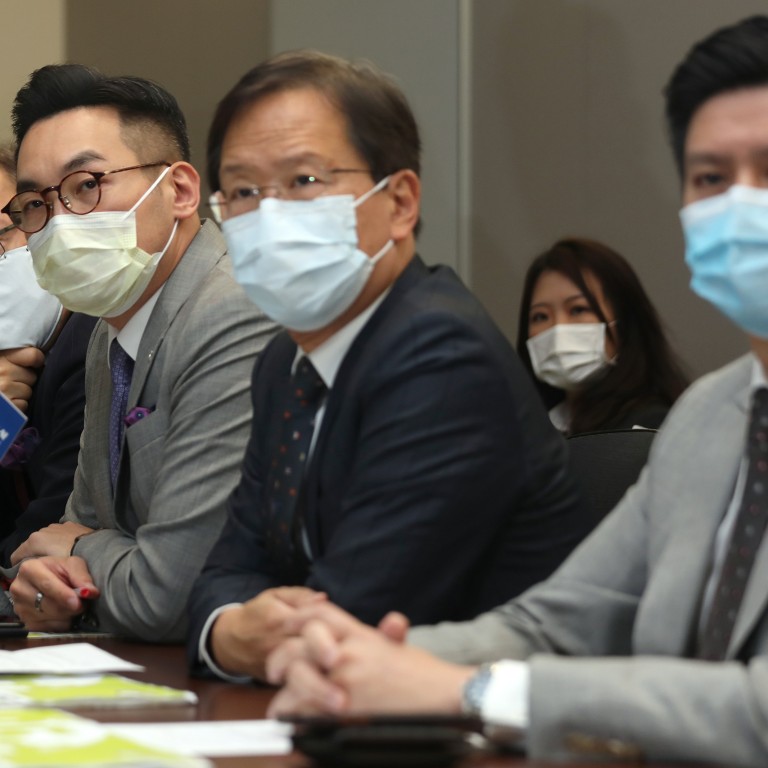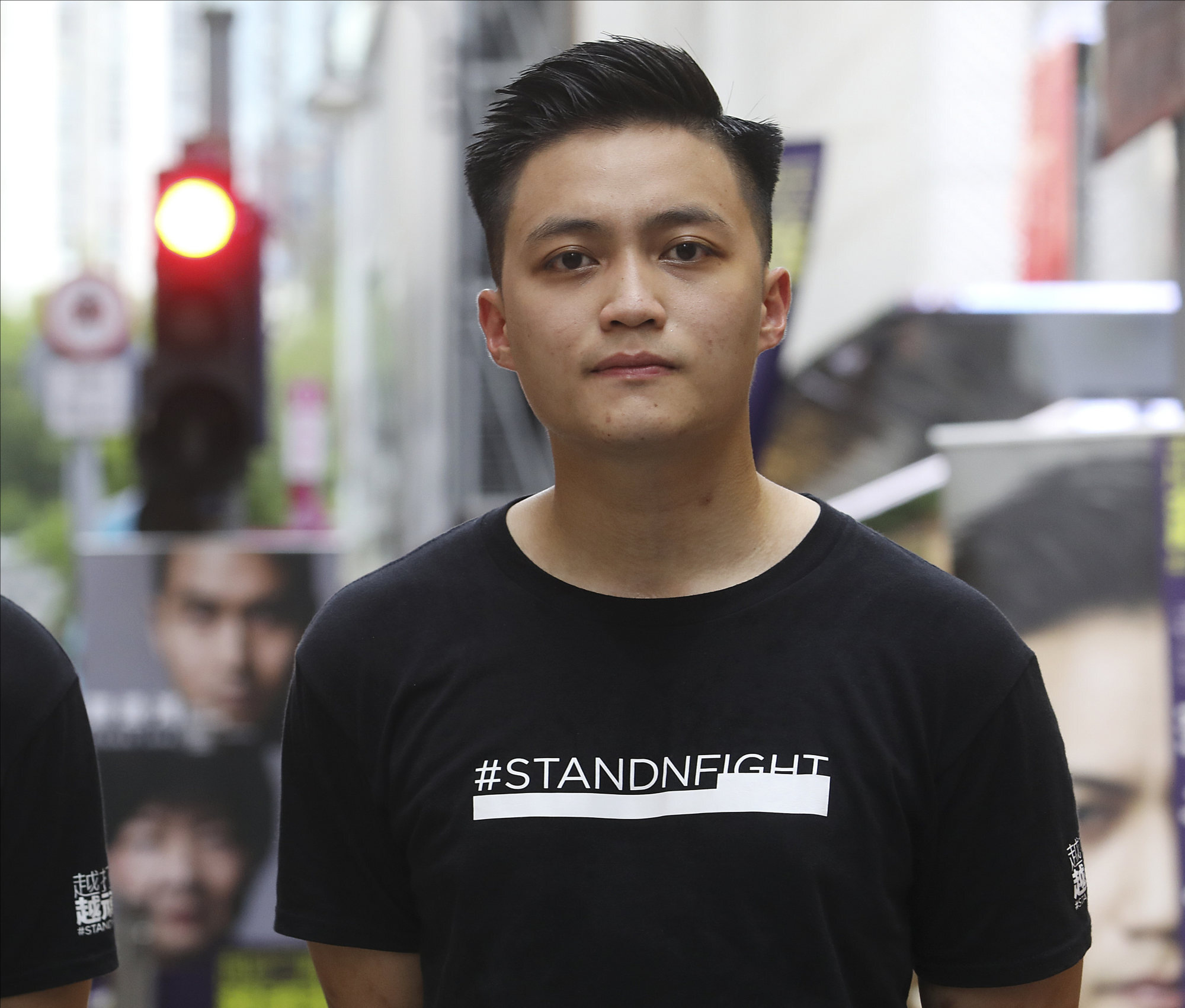
In open letter, ex-Civic Party members charged under Hong Kong’s national security law call for group to disband
- The group says they are concerned for their ex-colleagues’ safety, pointing to a chain of developments that began last year
- ‘The political reality is written on the wall: the Civic Party has already completed its historical mission,’ the letter reads
In calling for the dissolution of the party, the four – ex-lawmakers Alvin Yeung Ngok-kiu, Jeremy Tam Man-ho and Kwok Ka-ki, and district councillor Lee Yue-shun – said a chain of events that began last year had repeatedly proved that the party had no future in the city’s politics.
“Together with the [unsuccessful] bail application results of Tam and Kwok, along with the attitude of the court and prosecutors towards them, all this suggests that there is no more room for the Civic Party in the legislature, and very soon our colleagues in the district councils may face the same fate.
“The political reality is written on the wall: the Civic Party has already completed its historical mission.”

All four announced their resignations from the Civic Party during their lengthy bail hearings last month. Lee was the only one ultimately allowed to await trial outside of prison.
In their letter, they said they had proposed disbanding the party during the bail proceedings, and had recently reiterated that stance to its leadership through different channels ahead of its retreat last month.
“Although a conclusion was reached to ‘retain the Civic Party’ … we are still deeply concerned about the safety of our ex-colleagues,” they wrote. “We hope you all can continue with your work and serve Hongkongers based on the premise that your own safety is fully protected.”
Hong Kong must show resolve in defending ‘bottom line’ of security: Beijing official
The four also alluded in their letter to new oath-taking requirements for the city’s district councillors, most of whom belong to the opposition after the camp scored a landslide victory in the municipal level polls at the height of 2019’s anti-government protests. The new rules surrounding the pledge of allegiance are widely seen as paving the way for a mass disqualification of opposition district councillors.
The four said time was running out for the party to make a decision about its future.
“We no longer have any role in the Civic Party to give our advice. We can only wish for you all to be guided by your wisdom to prevent more party members from being stuck in a predicament,” they wrote.
One Civic Party insider, who spoke on the condition of anonymity, said the letter was unlikely to change the party’s decision to stay together.
“We are aware of their views and we respect that, but we have already decided to not disband following three to five rounds of discussion,” the member said. “There is no guarantee that disbanding the party would keep everyone safe. We can only continue in the direction that we think is right.”
Police ‘drafting protocols’ for screening Hong Kong election hopefuls
Civic Party chairman Alan Leong Kah-kit also said he had discussed the possibility of disbandment multiple times with the party’s members, and eventually decided to maintain the group while adjusting its course.
“We would like to continue to walk together with Hongkongers, in justice and conscience,” Leong said. “We thank everyone who once contributed to the party and those who will continue to.”
The Civic Party, founded in 2006, had been roiled by political developments ever since Beijing imposed its national security law on Hong Kong last June.
Earlier this week, former lawmaker Dennis Kwok announced he had quit the Civic Party – which he co-founded – revealing he had moved to Canada.
Hong Kong ex-opposition lawmaker Dennis Kwok reveals he has quit Civic Party
Kwok, who used to represent the legal sector, had been accused by Beijing of misconduct by “paralysing the legislature” with filibustering tactics and failing to select a chairman for Legco’s House Committee despite holding 19 meetings on the matter from October 2019 to May 2020. A police source previously confirmed the force was investigating Kwok for possible misconduct in public office.
The three former Civic Party lawmakers now in custody reiterated in their letter that they had quit politics for good, and would not be commenting on any political developments online or in the media, nor would they be discussing Hong Kong affairs with any official or unofficial overseas entities.
Leong had previously told the Post that the Civic Party only had enough money to continue operations for another four or five months, saying the prosecution of the four former members under the security law, as well as the coronavirus pandemic, had made fundraising very difficult.

